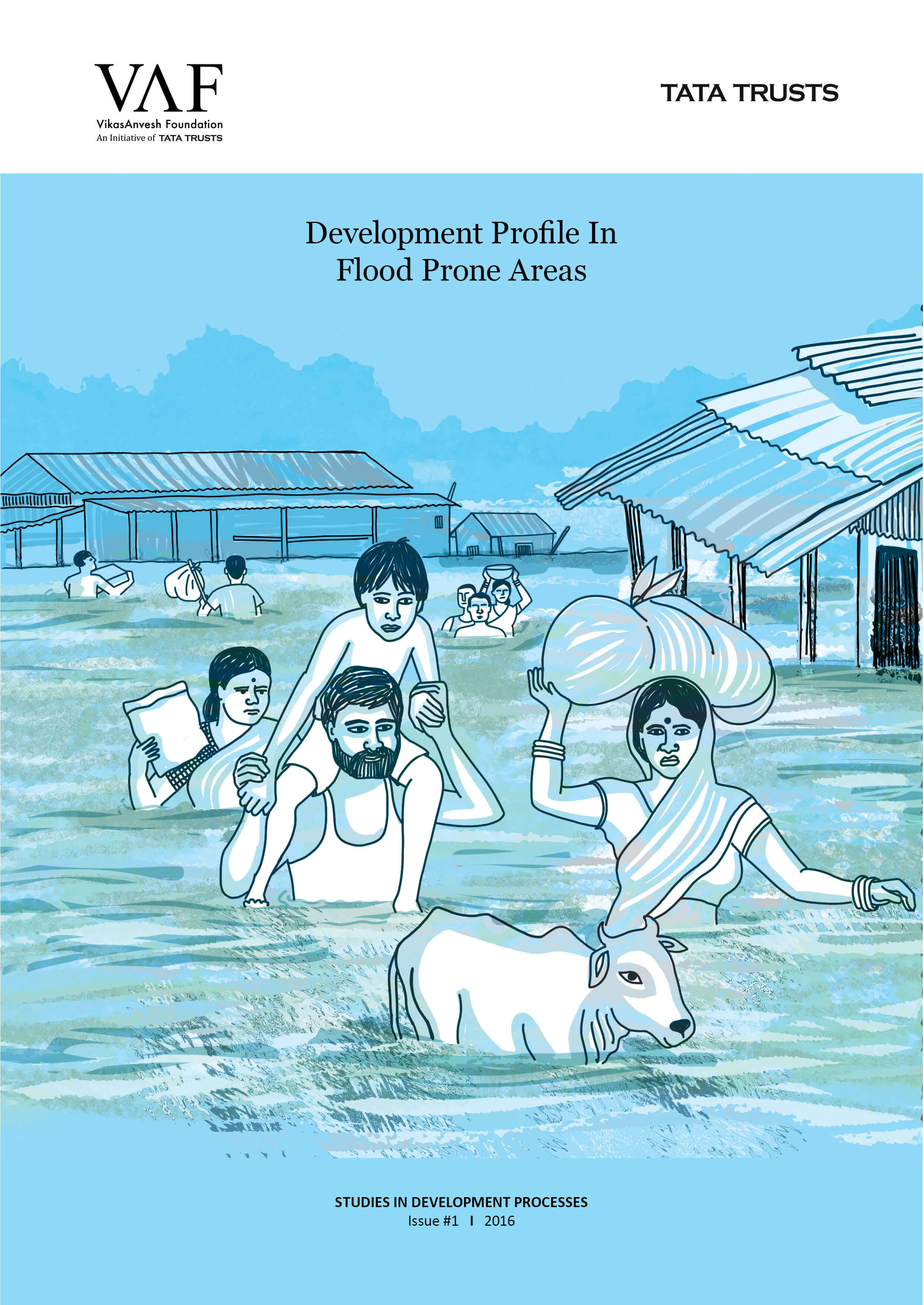Studies in Development Processes Issue #1
Authors: Sanjiv J Phansalkar, Nirmalya Choudhury, Tauqueer Ali Sabri, Vivek Kher and Mayuri Hazarika
Floods have an adverse effect on the Indian economy every year. On an average, every year around 7 million hectares of farm lands get affected by floods, around 3.2 million people are affected to varying degrees, and more than 1600 human lives and 89,000 cattle are lost due to floods. The annual damage to property amounts to Rs 18 billion and is rising each year.
A study was initiated to understand the nature of problems posed by floods in recurrent flood prone areas, to underline specific efforts undertaken by communities and development interveners to cope with floods and to suggest a tentative list of possibly programmable activities which can be supported / implemented by the Trusts to help the flood affected communities. Field research was undertaken in 72 villages spread over five regions within the recurrent flood prone area, namely Eastern Uttar Pradesh, North Bihar, North Bengal, Lower Assam, Upper Assam and Barak Valley. Based on multiple interviews and focus group discussions with the many people residing in these areas, the team traced out the myriad water related hazards faced by them.
Some specific impacts of floods were ubiquitous across the regions: shortening of the cropping season and crop failure, dismal status of (road) infrastructure, inadequacy of boats (an otherwise all-purpose mechanism for mobility), acute difficulty in obtaining safe drinking water during floods, security and privacy issues during the onslaught of floods arising from an overwhelming practice of open defecation, and lack of access to education and health services during the floods, etc. The study identified a set of interventions possible (or already being tried out) in each of the regions studied which contribute to resilience building among the communities residing in the flood prone areas. The study also highlighted the drudgery faced by women during and post-floods and other problems specific to women: inability to maintain proper hygiene, absence of basic gynaecological care services, the burden of arranging the food, water and fuel for the family, etc. Some of the possible interventions that the study highlighted include provision of elevated platforms with clean drinking water and sanitation facility, provision of biodegradable sanitary napkins for women during floods, elevated hand-pumps, raised toilets, floating schools, availability of boats, aggressive promotion of small pumps to facilitate irrigation in dry season; coupled with promotion of creeper gardens and vegetable cultivation.

